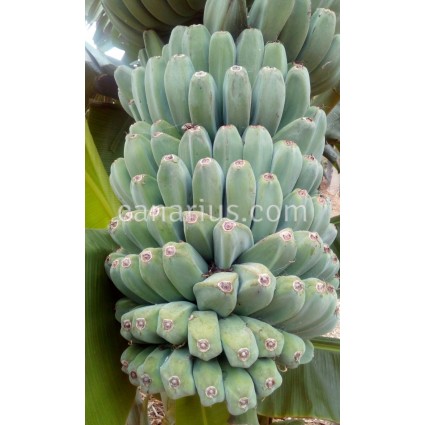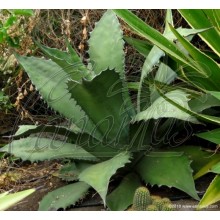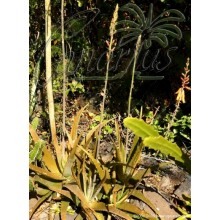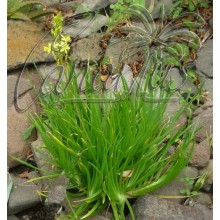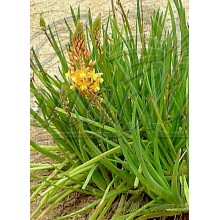Musa 'Dwarf Saba'
Saba is a hardy edible banana with tasty, thick and squared fruits, eaten raw or cooked, widespread in tropical Asia. Also flowers are regularly eaten as a delicacy. It possibly originated in mountain regions of NE India and trees are rather hardy to drought and cold. This dwarf or semi-dwarf type helds bunches at 1,7-2,5 m from the ground.
Neu
Saba is a hardy edible banana widespread in tropical Asia. Fruits are eaten raw or cooked and also flowers are used. Trees are rather hardy to drought and cold. White wax coats much of the pseudo-stem.
This is a semi-dwarf type, that holds bunches at just 1,7-2,5 m from the ground. Saba possibly originated in the mountain regions of NE India and the original plants are stout and tall, with bunches held at 4 of more meters from the ground.
Saba fruits have a distinct dense fruity flavour, they are somehow squared, grey-green when unripe. They turn dull yellow, often with dark blotches on the skin... they can be a bit ugly when fully ripe! It is doubtlessly a supreme fruit, among the top favourite fruits in the Philippines and other countries.
We do not know how will it perform in the Mediterranean, but it is supposed to be rather hardy to cold and drought compared to other edible bananas. Be sure that here in Tenerife it grows many new leaves troughout the coldest months, while many other bananas do not. The plant is robust, with distinct white-glaucous waxy pseudostems.
What do we ship?
We ship a stout rooted sucker, not a potted plant. You will receive it with the corm wrapped in a bag with moist sphagnum or perlite.
In spring and occasionally in other seasons, suckers may not have roots. In this case, suckers are easy to root if temperatures are kept between 20 and 30 C.
| Anbau | Innenanbau |
| Herkunft der Arten | Asien |
| Präsentation | Freiliegende Wurzeln |
| Maximale Größe | 300cm und mehr |
| Botanische Familie | Musaceae |
| Lichtbedürfnis | Sonne |
| Mindesttemperatur im Winter | -5 ºC bis 5 ºC |
| Pflanzentyp | krautartig |
| Pflegebedürfnis | Blumentopf |
| Wuchsform | Rhizomen |















